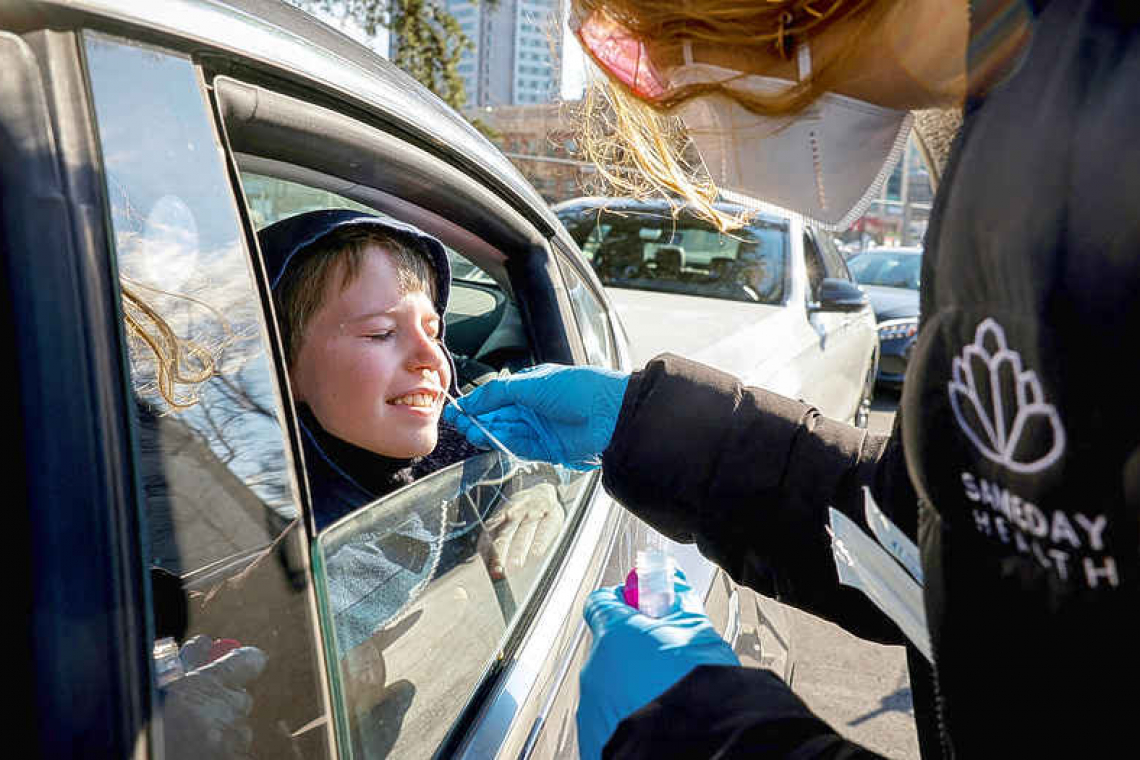WASHINGTON--Americans are facing a second Christmas of upended holiday plans, with a surge in COVID-19 infections fuelled by the now-dominant Omicron variant forcing some people to cancel travel or worry about whether it is safe to visit loved ones.
Carmen Rivera and her fiancee Jasmine Maisonet made the painful decision to cancel their flights to visit family in Florida and Puerto Rico after Maisonet was exposed to an infected co-worker and tested positive for COVID-19, even though she was vaccinated and got a booster shot.
Rivera, a newly elected city council member in Renton, Washington, hasn't seen her family in Puerto Rico since the start of the pandemic. It stings to spend yet another holiday season in isolation, Rivera said.
"We thought we were safe, we were washing our hands, sanitizing, vaccinated, masking," Rivera said.
The swift rise in infections from Omicron, first detected last month and now accounting for at least 73% of U.S. cases, has caused fresh concern around holiday travel. Many Americans are scrambling for COVID-19 tests before heading to see relatives, while also sorting through varying public health guidance about what is safe for gatherings.
In the last seven days, the average number of U.S. cases has risen 26% and cases are up 83% since the start of the month, according to a Reuters tally. President Joe Biden on Tuesday pledged to assist states in battling the wave of cases by providing stockpiled resources and mobilizing 1,000 troops to aid with healthcare.
Dr. Rochelle Walensky, director of the U.S. Centers for Disease Control and Prevention, told NBC that COVID-19 posed less of a threat this year than last year because of vaccines and a better scientific understanding of the virus.
Americans vaccinated and boosted against COVID-19 can be with family over the holidays but attending large gatherings of more than 30 people is not safe, even for those who received a booster dose, top U.S. infectious disease expert Dr. Anthony Fauci said on Wednesday. World Health Organization Director-General Tedros Adhanom Ghebreyesus called for greater caution, urging people to postpone gatherings.
Long Island insurance broker Lori Eves considered the risk and refused to let Omicron ruin her trip to Paris with her retired mother this month. The two women had the Palace of Versailles nearly all to themselves on Friday.
"I'm not really worried," Eves, 42, said as she toured the palace outside the French capital. "We're both vaccinated and boosted and we just, you know, we felt safe."
Some Americans are waiting until the last minute to decide whether to press forward with their Christmas plans. Morgan Johnson, a 28-year-old middle school teacher in Washington, D.C., is spending the week with her parents in Chicago. They are taking several at-home COVID tests to determine whether they will drive to see Johnson's grandparents outside Minneapolis on Christmas.
Her grandparents are in their 80s, vaccinated and want the family to visit, Johnson said. But she and her parents, all of whom are vaccinated, worry about spreading the variant. "You would never forgive yourself for getting your grandparents sick," Johnson said.
Travel companies are betting vaccinated Americans will follow through on their plans and have retained a rosy outlook on this year's holiday season. The American Automobile Association estimates that 109 million Americans will hit the road, board a plane or otherwise travel more than 50 miles between Dec. 23 and Jan. 2, marking a 34% increase from 2020. AAA spokesperson Ellen Edmonds said that estimate was compiled before Dec. 14, and the recent spike in cases might prompt cancellations.
The Transportation Security Administration screened more than 2 million passengers through the nation's airports each day from Dec. 16-20, about double the number on those dates in 2020 and almost as many as in 2019.







